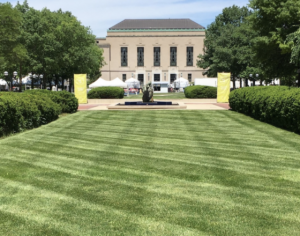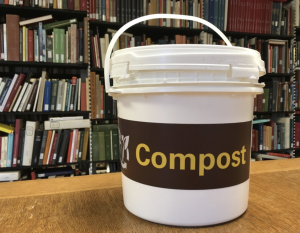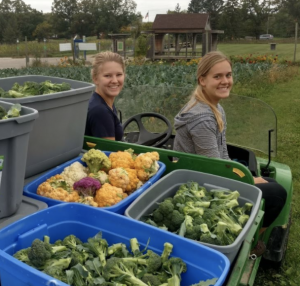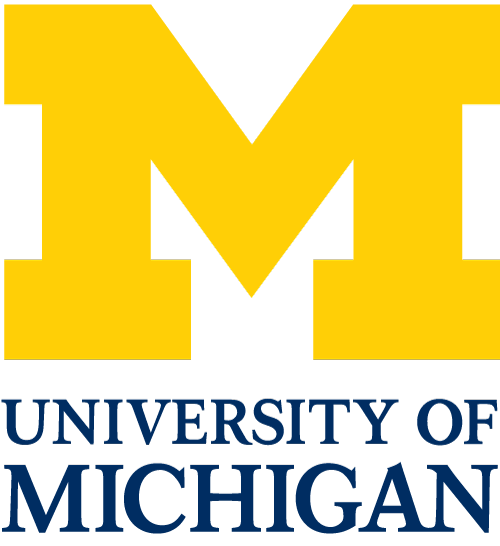Landscaping
UM’s sustainability goal is to reduce chemical applications to campus landscapes by 40% by 2025 and use storm water management techniques to protect the Huron River, and so far 37% of the goal has been reached. As of 2019, chemical applications have been reduced by 46%, and over 80% of campus is maintained with organic fertilizer such as the lawns at Ingalls Mall and the Diag. To prevent the need for chemicals and maintenance, plant pollinator gardens have also been created to support natural areas. Over thirty acres of manicured lawn have been replaced with natural landscaping over the past ten years, and Radrick farms often bring in goats to naturally control vegetation. In terms of stormwater management, rain gardens are used to reduce the amount of water that carries trash, chemicals, and sediments through storm drains and into creeks and rivers.
Composting
Established as one of the main solutions for eutrophication, composting creates an organic fertilizer substitute, limiting the amount of harmful chemicals used in farming. U of M composts in dining halls, cafes, dorms, and a few academic buildings across campus. The Office of Campus Sustainability (OCS) stated, “Food waste and food packaging account for 30-40% of what U-M sends to landfill from most buildings.” Launching a Zero Waste Program in 2017, OSC has been working to make campus events zero waste through compostable tableware and offering compost collection boxes and compost service. Additionally, they are making staff kitchens zero waste. As part of the Sustainability Goals for 2025, UM is tackling zero waste at Michigan Stadium. Several changes will take place, including: recyclable and compostable stadium signage, recycle and compost bins with labels, sustainable food services sourcing from compostable products and packaging, and an increase in waste separation efforts during postgame clean ups.
Campus Farm
The Campus Farm is another important source of composting that prevents further fertilizer runoff from entering water systems. Providing produce and other food to the dining halls and U of M Dining services, the farm contributes sustainable food all grown by students. Becca Harley, a student worker at the farm, said that the farm uses a lot of compost for fertilizer which reduces their chemical use. She also stated they have a good crop rotation which allows for diversified vegetable farms that don’t harm the soil as much, therefore also requiring less harmful chemicals to enhance soil. Their main soil amendment is composted chicken manure.




